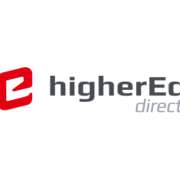DeVos Sued over Sexual Assault Policy in Higher Ed
Education Secretary Betsy DeVos is being sued by several civil rights organizations about how her agency is investigating sexual assaults on college campuses. This past fall, the Education Department dropped Obama-era policies and issued new rules on how colleges deal with sexual assault and harassment claims. The new instructions now require that universities use higher standards of evidence to proceed with campus judicial action in the case of an allegation.
Civil rights advocacy groups argue that previous Obama-era guidelines offered critical protections for survivors of sexual assault and that the new rules, under DeVos, create a system which discourages sexual violence and assault victims from using the campus process to come forward “leading to further reductions in reports of sexual violence and assault.” According to Stacy Malone, the executive director of the Victim Rights Law Center, “They (survivors) fear they are no longer able to get a fair shake.” The actual lawsuit alleges a “Myriad of statements and actions by the Department’s leadership reveal a discriminatory viewpoint. Thus, not only does the Department’s 2017 Title IX policy fail to meet the reasoned decision and other requirements of the Administrative Procedure Act, it also violates the Fifth Amendment’s equal protection guarantee. Plaintiffs therefore respectfully request that the 2017 Title IX policy be vacated.”
Secretary DeVos announced the changes to Title IX in September, saying the previous system “lacked basic elements of due process and failed to ensure fundamental fairness.” She continued with, “There’ve been too many students wronged in a well-intentioned attempt to ensure that this issue is not swept under the rug and not in back rooms of schools any longer.” The Department of Education said it plans to enact the new guidelines after a public comment period.
***Stay up to date with all the changes in higher education through HigherEd Direct, test our database today!











